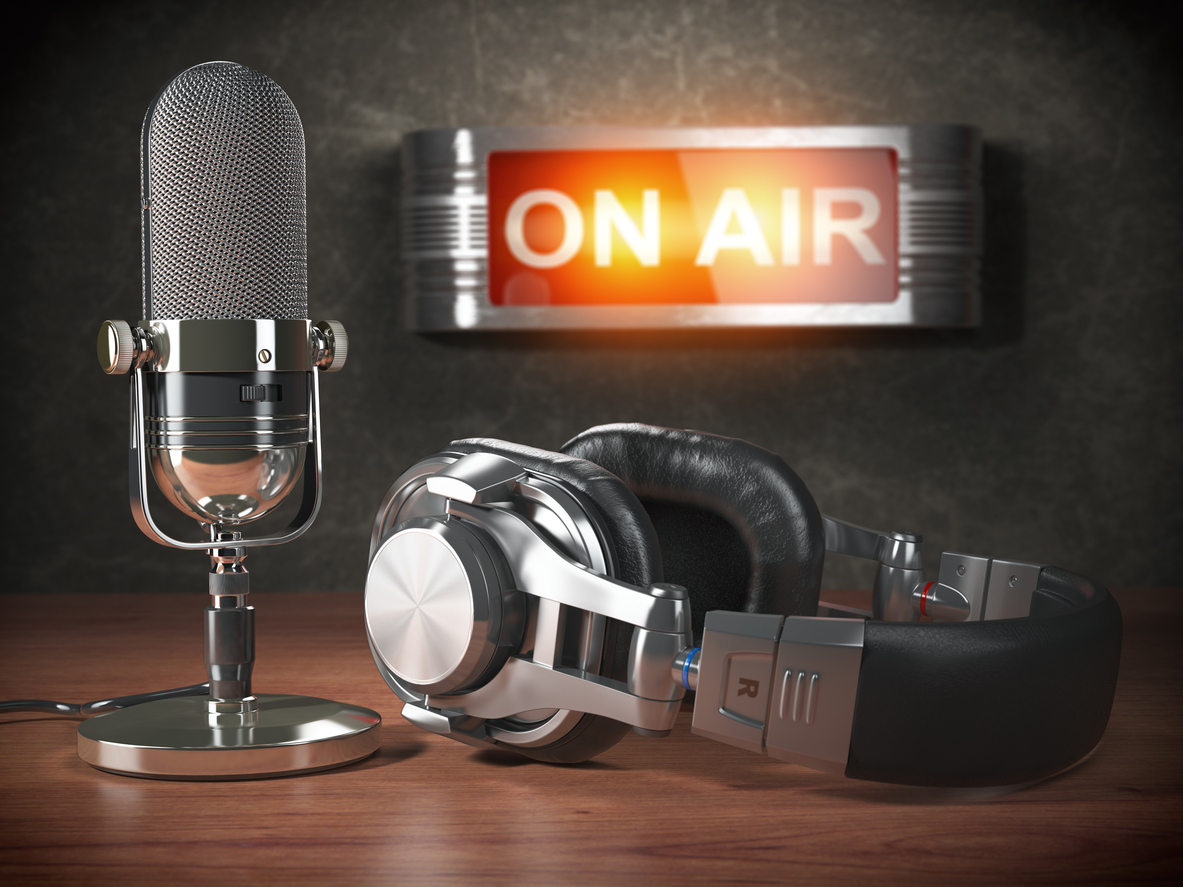Almost everyone has encountered the term “podcasting” at least once in their lifetime. Though most people don’t know when the word “podcast” was born but podcasts have been getting more popular over time. Podcasting has become a whole industry in the past few years with the prominent use of mobile devices and is becoming popular enough to challenge radio.
 A podcast is a media source using digital audio as its main source of delivery. Podcasts are often published as episodes and serie. Podcasts are more effective at addressing an audience more than blogging as the audience have to listen attentively instead of reading or watching and forgetting it the very next moment. The word "podcast" itself was an alien word until it was first introduced back in 2004. The word is formed by the combination of the other 2 words, "iPod" and "Broadcast", and was first used by the BBC journalist Ben Hammersly in February 2004. Though he was a tad unaware at first, he came up with a word for an industry which was about to influence the whole world of media and entertainment. More audio-bloggers started using the word a lot after that and it ultimately became what it is today.
A podcast is a media source using digital audio as its main source of delivery. Podcasts are often published as episodes and serie. Podcasts are more effective at addressing an audience more than blogging as the audience have to listen attentively instead of reading or watching and forgetting it the very next moment. The word "podcast" itself was an alien word until it was first introduced back in 2004. The word is formed by the combination of the other 2 words, "iPod" and "Broadcast", and was first used by the BBC journalist Ben Hammersly in February 2004. Though he was a tad unaware at first, he came up with a word for an industry which was about to influence the whole world of media and entertainment. More audio-bloggers started using the word a lot after that and it ultimately became what it is today.
Before podcasts were a thing, people were used to listen to radio shows and programs as the medium of receiving information through audio. Radio shows were a little hard to follow and inconvenient as the programs were scheduled and non-replay-able. So, the hosts decided to also record their shows and convert them into audio formats to be streamed online. The first instance of this being done was recorded in 2003 where Matt Schichter Interviews were published online and were up for streaming. The reason for doing this was in hope of more audience will gather as the recorded audio files were available for the audience’s convenience as these files were accessible anywhere and anytime.
Then came the influence of technology. Apple released their iTunes 4.9 app adding a feature to support podcasts formally and separately in 2005. This made it easy for the listeners and as well as the publishers or creators as this helped the audience to directly access their favorite podcasts in a single application without needing to have different software to download and listen to them. After this, many mainstream radio networks like BBC and CBC Radio One started using the iTunes platform to publish their podcasts and other creators also followed later on.
Gradually podcasting became more and more famous and conventional as more companies invested in their own websites and applications creating new opportunities for all the small-scale podcast creators worldwide. Podcasts then evolved into more categories and genres like novels, interviews and even video podcasts, with having a lot of platforms to back up the creators. Ultimately in the 2010s, the whole industry became more mature and colorful, becoming what it is today.
 Who exactly creates podcasts? The answer is anyone! Podcasts might have been commercially made back in the early and mid-2000s due to the limited availability of equipment or the high price tags on them. But, with the advancement and the competition in the technology, equipment has become widely available and affordable, allowing more creators to join the industry easily. One just requires a computer, a good microphone and a silent room to create a podcast. There are a plenty of podcast platform providers to help you host your digital audio files for low prices and even for free. This allows the community to be wider and vivid, and the industry to expand paving a path to a very successful future to come.
Who exactly creates podcasts? The answer is anyone! Podcasts might have been commercially made back in the early and mid-2000s due to the limited availability of equipment or the high price tags on them. But, with the advancement and the competition in the technology, equipment has become widely available and affordable, allowing more creators to join the industry easily. One just requires a computer, a good microphone and a silent room to create a podcast. There are a plenty of podcast platform providers to help you host your digital audio files for low prices and even for free. This allows the community to be wider and vivid, and the industry to expand paving a path to a very successful future to come.
Though podcasts started as just regular radio shows, the popularity of the industry made it evolve into having more diversity and color. More creative people joined the industry and came up with more unique ideas and different approaches to make it more entertaining. The creators started to get all handy and creative to achieve the full potential by using their respective platforms effectively and efficiently. For example, enhanced podcasts became very common with the introduction of platforms such as YouTube and Twitch. Enhanced podcasts being podcasts but with visual aids like images, helped to deliver more information and entertainment gathering more and more audience.
Likewise, other entertainment podcasts like podcast novels also became a thing and more common as people tended to enjoy listening more than reading. This might be because of the busy lifestyle adapted to the today’s surviving conditions but podcast audiobooks became famous among a lot of people who wanted to enjoy their leisure or even to enjoy long rides. Podcast novels also opened a window for current novelists to either release an audio version of their already published books or release an audiobook along with their new releases, making it a marketing strategy as well.
Technology surely have played a great role in building the podcast industry. The name itself arrives from a device used listen to audio files on the go, the iPod. Over the years in the timeline of the history of podcasts, the use of mobile devices has caused a significant rise in the audience and also the publishers. Over the last 2 decades, mobile phones and devices have become more affordable and widely available. This is all due to the advancement in the technology and the competition that comes with it. Mobile phones have been getting smarter and currently, a smartphone is the only tech device one might need as his entertainment, news, information and socializing source. Almost everything is accessible one tap away. By 2019, reports state that the number of smartphone users have peeked at more than 3 billion users. So smartphone being the most common tech device and the most available device on the planet, it has also become the main source to access podcasts out of other sources.
Not only the devices but also the platform providers are growing and becoming better by the day. Back in the early stages of podcasting, a limited number of websites were available to host the digital audio files in RSS Feeds. People had to either download the files and listen to them on their devices or stream on these limited number sites. Later when the concept of podcasting was spreading like wildfire, other companies stepped up to make their own platforms. For example, Apple starting with giving out a formal spot for podcasting on their iTunes app, other similar app developers and competitors wanted to make a similar platform. This ultimately led to the creation of apps such as RadioPublic, Pocket Casts, Spotify and Google Podcasts.
If you’re planning to start podcasting or trying to start listening to one, the availability and accessibility today is really good and huge. If one just searched the word “podcast” on the internet, he’ll get over hundreds of sites related and offers podcasts so it isn’t that hard today.
It’s pretty clear that podcasting is one of the main medias out there and is yet to go a distance in the future. Though reports say that podcasting still bring a little amount of revenue overall, it’s also been reported that the audience keeps on growing in a very good angle. What makes podcasting unique from other medias is that both the listener and the producer is engaged in this media. Since the most of the listeners are attentive and responsive, the producers have great engagement and recognition in the community as well. The statistics show that there are over 800,000 podcasts with over 30 million episodes as of December 2019 and this shows how grown the industry currently is.
Publishers, what if you could leverage all your written content, to automate your audio content creation and help your audience listen to all your content when they are on the go. Contact us at contact@leesten.io and start the audio adventure now !